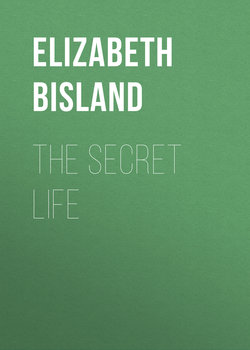Читать книгу The Secret Life - Elizabeth Bisland - Страница 8
November 6.
The Fountain of Salmacis
ОглавлениеG – was talking yesterday about the "Sonnets from the Portuguese." Liked them. Thought them the high-water mark of Feminine Poetry…
Alas, then, for that capitalized variety of verse!
To me these sonnets are extremely disagreeable. There is a type of man whose love is intolerably odious in all its manifestations to a wholesome woman. She feels that he is too nearly akin to her own sex for his love to seem a natural, virile thing. Other men never appear to guess this cause of persistent lack of success with women.
They say: "Jones is a good fellow – modest, clean-minded, gentle, – why is he so unlucky with women? The truth is, women like brutes."
The underlying femininity of Jones is not repulsive to them. They probably feel, however, the same repugnance for the tendernesses of women who are too nearly akin to themselves.
The Greeks seem to have thought about and observed this. From their keen vision none of the phenomena of life, apparently, was hid, and they were quite aware of this occasional confusion of the nature and person of the sex. As usual they typified it and invented legends about it, though they were not, of course, aware of its cause – the atavistic tendency to throw back to the primordial condition when both sexes existed in the same individual; but then they were poets and not scientists. They got at essential truths by instinct and revealed their knowledge by beautiful suggestion rather than by exact analysis. The dry-as-dusts fail even yet to see that their marbles and legends are as valuable in the study of life as German theses.
"The Sonnets from the Portuguese" give me the unwholesome, uncomfortable sense that one gets from those unlucky feminine men and masculine women. They mingle in a disagreeable fashion the pride and reserve of the woman who receives worship and the abandon and aggressiveness of the man who sues.
One wonders why women cannot write poetry? – or rather, to speak with more exactness – are never poets. Once or twice in their lives, perhaps, they may speak with sacred fire, but they are never, in the full meaning of the word, poets. They cannot rise out of themselves.
Gosse says of Mrs. Browning: "She was not striving to produce an effect; she was trying with all the effort of which her spirit was capable to say exactly what was in her heart."
There is the whole secret of the feminine failure in art. It always degenerates into an attempt to express, not humanity, but the individual woman. Woman is inevitably personal. She still sits alone at the door of her wigwam. Of humanity, she is ignorant, and to it is, moreover, indifferent.
Mrs. Browning was only once shaken out of herself – when she wrote that fine plaint "De Profundis" – voicing the griefs of the many in telling of her own. After all, a portrait of one's self only is not art, or is art in its most limited form. Aurora Leigh and all the rest are simply Elizabeth Barrett masking under other names. However much the hand may resemble Esau's, the voice is always the voice of Jacob.
Byron had these same feminine limitations – "dressing up" (as the children say) as a Pirate, a Turk, or the like, and reciting a rhymed Baedeker for the benefit of the untravelled; but whether Pirate or Giaour, always unmistakably Byron.
What the women with poetic gifts can do is to translate delightfully. Mrs. Browning's translations of Heine are quite the best in existence. Emma Lazarus made an English version of "Une Nuit de Mai" that is almost more delightful than the original. She might have enriched our treasury of verse with priceless transferences; instead of which she wasted her gifts upon unimportant "expressions of herself."
